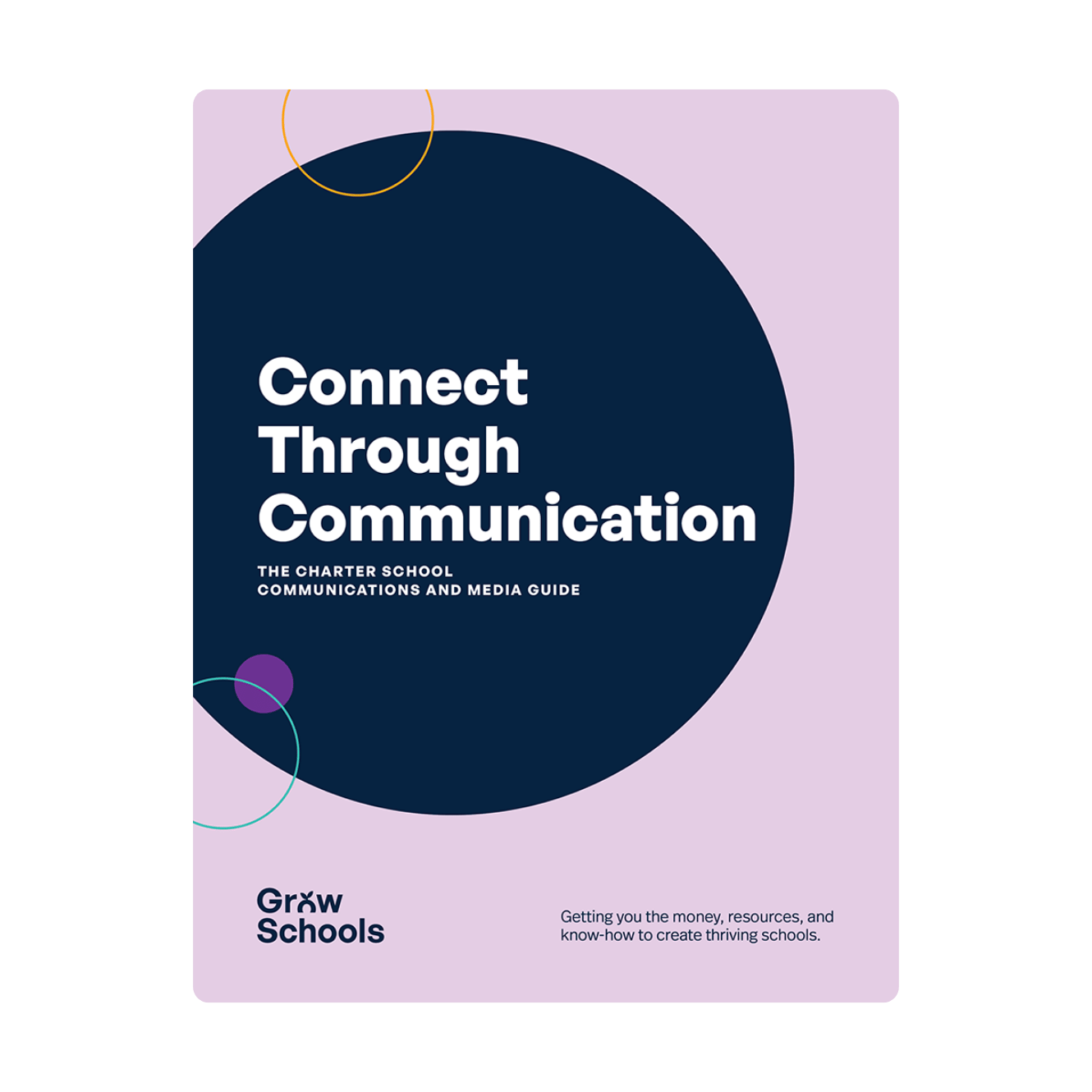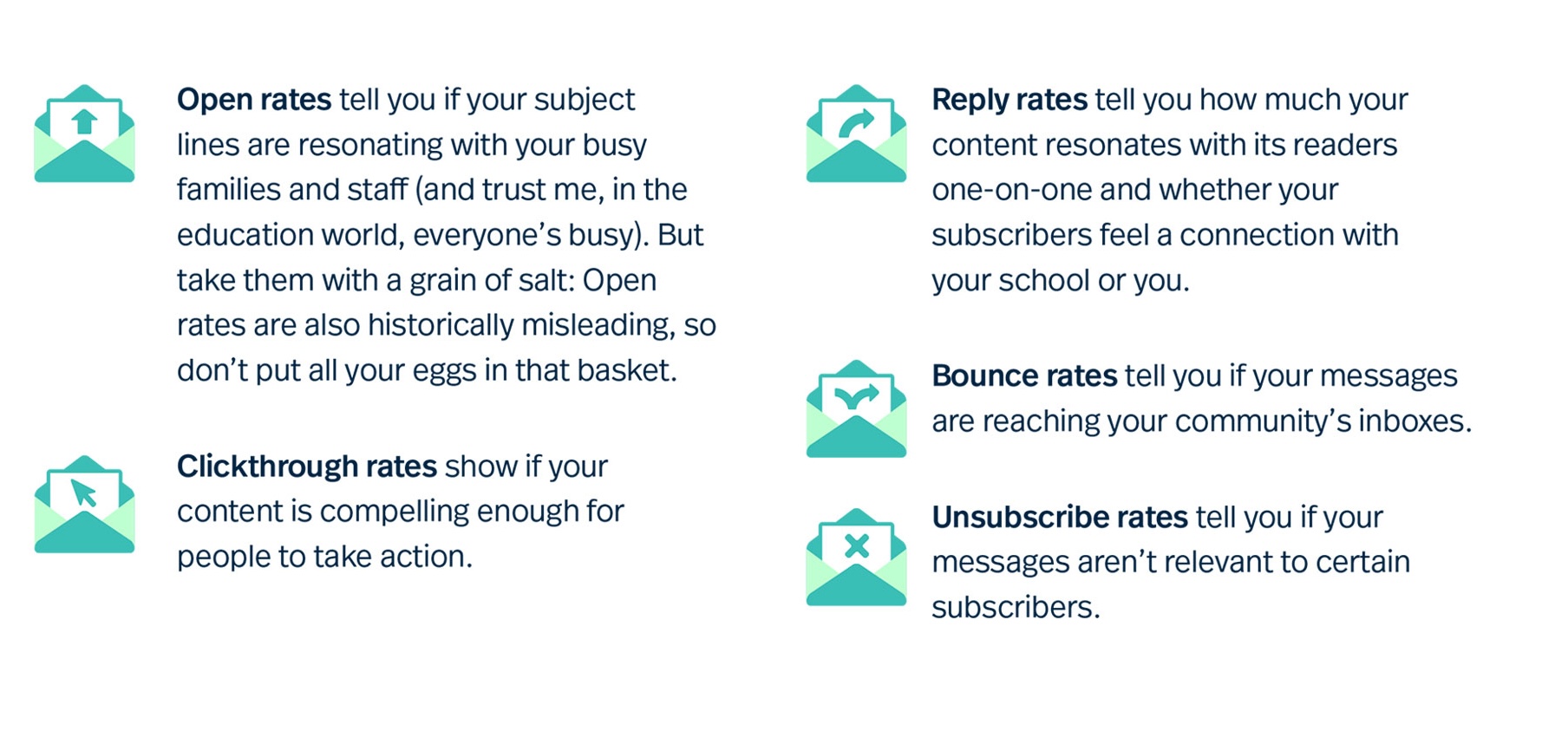
Resource Guide
The Charter School Communications and Media Guide
The tools to craft impactful messages, maintain a unified voice, and engage effectively across channels—including email, text messaging, and media outreach.
Download Full Guide for FreeLearn From Experts
This guide is designed to help charter school leaders refine their written communication, ensuring consistency, clarity, and impact. We’ve gathered insights from three experts to guide you:
- Marin Smith, a content strategist and writer, shares strategies for writing clearly, establishing voice and tone, and crafting messages that resonate with families.
- Michael Barber, a leading marketing expert, breaks down the importance of targeted email and text messaging campaigns.
- Jean Shields Fleming, a global communications consultant, offers practical tips for engaging with local media and making a communication plan for crisis situations.
The Power of Clear Communication at Your School
Whether you’re engaging families, rallying community support, or aligning your team, the way you communicate shapes how people perceive and interact with your school. When all communication channels align, your school’s message will not only be heard but will resonate and foster long-term support from your families, community, and beyond.
This guide is designed to help charter school leaders refine their written communication, ensuring consistency, clarity, and impact.

Writing with Clarity and Purpose
by Marin Smith
When we write—including to our school communities—we’re constantly weaving together different threads of persuasion, often without realizing it. It’s like conducting an invisible orchestra where logic, credibility, and emotion play together in harmony (or sometimes, if we’re not careful, in discord).
Think about the last time you had to announce a significant change in school policy. Your mind probably moved through several layers of persuasion. You were thinking through how to appeal rhetorically. The rhetorical triangle, introduced by Aristotle, consists of three key elements—ethos, pathos, and logos—that work together to create persuasive and effective communication.

Strategies for Effective School Email and Text Communication
by Michael Barber
Email is one of the most direct and effective ways schools communicate with families, staff, and the broader community. But without a clear approach, messages can become inconsistent, unclear, or overlooked.
Whether addressing a routine update or a critical issue, having a standardized approach to subject lines, formatting, and messaging can improve engagement, build trust, and streamline communication.

Strategic Communication and Media Relations
by Jean Shields Fleming
Whether you’re focusing on enrollment, celebrating student achievements, or navigating community relations, local media can be a powerful ally, if you cultivate real relationships. A well-placed article, TV or radio segment, or social media mention by a trusted journalist can elevate your school’s profile, build credibility, and attract new families.
Media coverage provides external validation, showcasing your school’s impact and offering an endorsement that resonates beyond your website or brochures.
By fostering consistent communication with local journalists and sharing wins regularly, your school can establish itself as a vital part of the community, ensuring that people know your accomplishments and think of you when they are shopping for schools.

Ready to build a waitlist?
Get Started- Talk to a real person
- Get qualified in minutes
- Fund your school